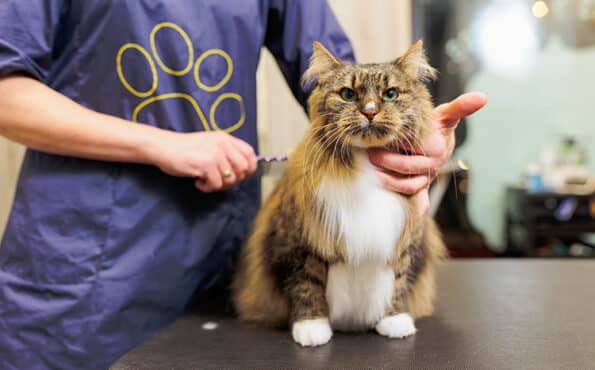Credit control is all about ensuring clients pay you on time, it’s the secret to keeping your business running smoothly.
As a small business owner, your income might go up and down, but your expenses (fuel, insurance, supplies, marketing) stay constant. Late payments can quickly snowball into unnecessary stress.
By setting up clear, professional payment practices, you can:
- Say goodbye to awkward payment chases
- Stay in control of your cash flow
- Spend more time doing what you love, and less time buried in bookkeeping
Here’s our tips for managing your pet business finances:
1. Set clear payment terms from the start
Make sure every new client understands your payment expectations. That includes:
- How much you charge per walk or package
- When payment is due (e.g. “weekly in advance” or “within 3 days of invoice”)
- Accepted payment methods up-front (e.g. bank transfer, PayPal, direct debit)
- What happens if payment is late (e.g. late fees)
Tip: Clearly communicate this in writing – whether it’s a formal contract, or through a welcome pack or email.
2. Take advance payments when possible
Taking payment before you start work helps prevent frustrating cancellations and no-shows. You could:
- Offer flexible weekly or monthly payment plans upfront
- Provide incentives (like a small discount, or a ‘freebie’) for early payment
This not only protects your time but also shows clients that you run a professional business.
3. Send friendly payment reminders, then follow up
Occasionally, clients just need a gentle nudge. A courteous reminder can make all the difference:
- Send your client a message the day before payment is due
- Follow up within 1–2 days after the due date with a polite reminder
Be polite but firm. You’re not just an animal lover – you’re a business owner. If your reminders go unanswered, continue to follow up. You may need to pause your services with the client until payment is received.
4. Charge late fees
Some pet businesses include a small late fee (e.g. £5–£10 per overdue invoice) to encourage on-time payment. If you do this:
- Make sure the late fee is clearly stated upfront in any contract or welcome pack
- Stick to it consistently
This isn’t about being harsh – it’s about valuing and respecting your time.
5. What to do if clients still don’t pay
If a client keeps ignoring reminders and you’ve stopped services, it’s time to take things up a notch:
- Send a firm final reminder about legal or formal collection if payment isn’t made
- Consider a debt collection service
- Small claims court may be an option if the amount owed is significant
Legal action should be a last resort, but you have rights and it’s important to stand up for your business. Find out more about making a court claim for money owed to you.
6. Stay professional at all times
Dealing with tough clients? Stay calm and professional. Use clear, factual communication and avoid emotional language.
Strong client relationships are key, but so is protecting your bottom line. With smart credit control, you can do both!


13 thoughts on “Credit control tips for pet business owners”
Comments are closed.